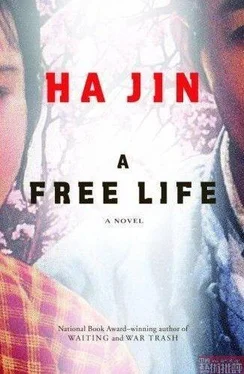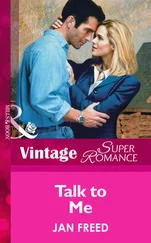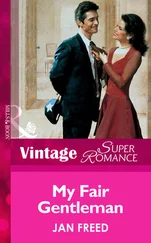The pot didn't come back that evening. Two days passed without any trace of it. When Mei Hong arrived to get the shrimp and rice, Nan asked her where it was. At first she dodged the question and just promised to bring it back, but then admitted she didn't know its whereabouts either. She explained, "I told them it was mung-bean soup, but they wouldn't let the athletes drink it. They were afraid the soup might affect their urine tests."
"What?" Nan couldn't believe his ears. "It had nothing in it but a few beans. I didn't even dare to put in sugar."
"I know. They wouldn't listen to me, because their higher-ups had ordered them not to accept any drinks from outside. So they wanted ice instead of mung-bean soup. We used the pot to carry ice into the Olympic Village."
"What happened to the pot? Why didn't you bring it back?"
"I tried to personally take the pot filled with ice into the compound, but the guards blocked me. One of them shouted, 'No taggy, no entry, Mama-san.' Damn that camel! Do I look like an old Korean woman?"
Nan quenched his impulse to laugh. "So you dumped the soup, didn't you?"
"Yes, I'm sorry. I couldn't follow the pot."
"I want it back. I spent nineteen dollars for it."
"I'll see what I can do."
After that conversation, Mei Hong stopped coming to fetch food, so Nan gave up cooking lunch for the athletes. The Wus were glad that finally the woman seemed to have disappeared from their lives.
DICK'S book, Unexpected Gifts, came out in August and was well received. These days he was busy reading at colleges and libraries and seldom came to the Gold Wok. Nan saw a brief but positive review of the book in the Sunday New York Times, which he often bought at Kroger. He could tell that Dick was now taken more seriously by critics. He phoned his friend, who was not in, so he left a congratulatory message. Dick didn't return his call. He was traveling a lot lately.
Nan wondered whether his friend had abandoned him. Then one afternoon Dick showed up, the same disheveled man in an unbuttoned denim jacket. He didn't look happy and told Nan, "My book is doing well, but the press won't reprint it."
"Why? Don't zey want to sell more books?"
"I don't know. They've never planned to make money from poetry. Once a book has sold out, it's dead." "Dead in just two mons?"
"Well, not yet. They still have three hundred copies in stock, but once those are gone the book will be out of print." He let out a sigh. "Zat's terrible."
"See, whenever I finish a book, I'll go through a big crisis, not knowing who will publish it. Whenever my book is doing well, it will create another crisis, because it means the book will be gone soon. It's very hard to keep a book of poetry in print for up to three years."
"Man, you have depressed me," Nan said gravely.
"Don't get upset. We write poetry because we love it. To tell the truth, if I didn't write, I don't know if I could have lived so long. I don't regret doing it."
That baffled Nan, who felt Dick could easily live without making poems. Dick might just have wanted to sound theatrical. Look at Nan himself-he hadn't written anything for a long time, and still he was breathing normally, in the pink, as it were. So he had his doubts about Dick's confession. Not until several years later did he fully understand the truth of his friend's words.
THE BERNSTEIN GALLERY in Atlanta was going to hold its fall show, at which some painters in the Southeast would be featured. Bao mailed Nan a card that bore a painting from his Shanghai series and the information on the exhibition. He wrote that he hoped to see Nan there and that he had invited Dick as well. Nan knew Dick wouldn't be there, for these days his friend was always out of town giving readings, except when he had to come back and teach.
Nan managed to go to the show on the opening day. He arrived ahead of the crowd in the afternoon, as he'd have to leave early before the busy hours started at the restaurant. Bao wasn't there yet, so Nan was able to walk around and look carefully at the works by all twenty-three artists. He found only a few of them remarkable. He noticed the prices for the paintings were not as high as he had expected; the most expensive piece was marked for $6,000. Among these paintings, Bao's didn't stand out at all. Most of his works were priced around $3,000; evidently Tim and Brian had overstated the case when Nan had met them. He wasn't impressed by Bao's new works either. The whole Shanghai series looked like an imitation of van Gogh, dull and even clotty in places, without the master's brightness and vibrations. The Hunagpu Bund was presented like a streetscape; without the title, few people could have related it to the Shanghai waterside. The view of a thoroughfare in one painting lacked specifics, as if it were a scene of nineteenth-century Paris. Below Bao's central piece sat a large bin containing numerous smaller objets d'art made by him: a still life of chrysanthemums, a pencil drawing of a Himalayan cat, a gouache of a dancing girl, a miniature seascape. These were priced between $150 and $300.
They reminded Nan of a Chinese buffet that offered numerous choices, none of which was refined or sumptuous. Obviously Bao, cashing in on his success, had diffused his energy and lost his creative center. This troubled Nan.
Ian Bernstein, a thickset, swarthy man and the owner of the gallery, greeted the early arrivals with a tumbler of mimosa in his large, veined hand. Nan talked with him while they stood in front of his friend's works. "What do you sink of Bao's new paintings?" he asked Mr. Bernstein, who was also Bao's agent.
"I'm not bowled over by them." The host screwed up his left eye.
"Not as good as his Venice series, right?"
"Who would buy these? They don't have enough life in them. Even the colors are too dull for me." "I agree."
Bao appeared in the entryway. Mr. Bernstein went up to him and they hugged warmly. Then Bao came over and shook hands with Nan. He was fatter than five months before and looked stiff and rustic in his dark green three-piece suit and canary yellow necktie. Nan was determined not to praise his new works, so he asked about his health and his family. Bao was not only married but also an expectant father; his wife was due the next spring. After the birth of their baby, mother and child would come to join him here. "I'm going to buy a piece of land in a suburb of Atlanta and build my home on it," Bao told Nan proudly.
"That's great. Have you decided in what area yet?"
"Probably somewhere in Cobb County."
"It has a good school system."
"So I have heard."
Frank, Bao's lawyer student, emerged from behind. He had brought along his family, his wife and two sons. Bao turned away to greet them.
Seizing this opportunity, Nan disengaged himself. He was afraid his friend would ask him to comment on the Shanghai series. Part of him wanted to tell Bao the truth, which would have been embarrassing to both of them. He moved around to look some more and came upon a set of landscapes by a Floridian painter named Kent Philips. Unlike the other artists, who each had at least half a dozen paintings on show, this man had only three pieces here, none of which was fancy. But Nan liked them very much, fascinated by their dark, luminous quality. In these landscapes, every stream, every tree, every animal, every rock possessed a shimmering spirit that seemed transcendental and mysterious. The paintings had depth and a kind of darkness that reminded Nan of the forests in New England. Nan greeted the short, pudgy artist who stood beside his works as if unable to mingle with others, though his three pieces were all priced above $5,000.
"I love your work," Nan said sincerely.
"Thanks. That means a lot."
Читать дальше












